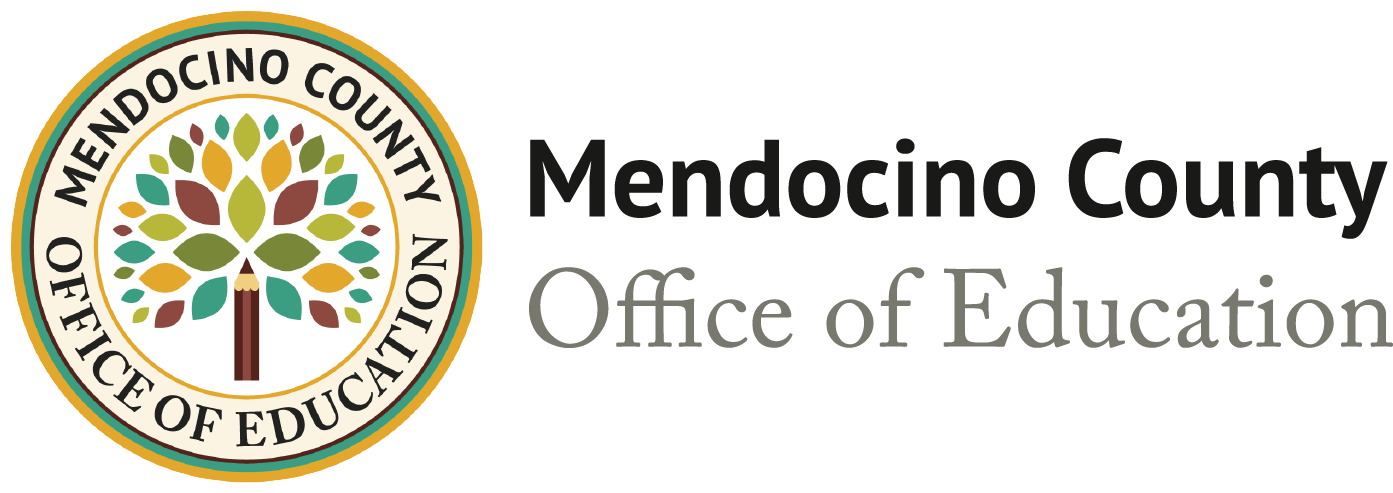
Positive Supports for Student Success
Building Positive Schools: Supporting Every Student's Succes
MCOE is dedicated to supporting schools, districts, and families throughout our county in creating positive, inclusive learning environments where every student can thrive. We believe that when schools implement systematic, evidence-based frameworks for academic, behavioral, social-emotional, and mental health support, students are empowered to reach their full potential.
Our team provides guidance, resources, professional development, and technical assistance to help educational communities implement comprehensive Multi-Tiered Systems of Support (MTSS). Through collaboration with schools, families, and community partners, we work to ensure that all students receive the appropriate level of support they need to succeed academically, socially, and emotionally. We understand that each student is unique, with their own abilities, challenges, and learning styles, and our framework is designed to meet students where they are.
Positive Behavioral Interventions and Supports (PBIS)
What is PBIS?
PBIS is a framework for creating safe, positive, equitable schools, where every student can feel valued, connected to the school community and supported by caring adults. By implementing evidence-based practices within a PBIS framework, schools support their students' academic, social, emotional, and behavioral success, engage with families to create locally-meaningful and culturally-relevant outcomes, and use data to make informed decisions that improve the way things work for everyone.
The PBIS framework emphasizes prevention, teaching expected behaviors, acknowledging positive behavior, and using data to guide decision-making. Rather than simply reacting to challenging behavior, PBIS creates proactive systems that teach and reinforce the behaviors that lead to success for all students.
Core Components of PBIS
PBIS is built on a foundation of integrated elements that work together to create sustainable change:
- Data for Decision-Making: Schools use multiple data sources to identify needs, track progress, and make informed decisions about supports and interventions.
- Measurable Outcomes: PBIS focuses on clear, measurable outcomes for student behavior and school climate that can be evaluated through ongoing data collection.
- Evidence-Based Practices: The framework emphasizes practices with strong research backing that demonstrate these outcomes are achievable across diverse school settings.
- Efficient Systems: PBIS requires systems that efficiently and effectively support implementation, including leadership teams, professional development, and ongoing coaching.
Understanding California's Multi-Tiered System of Support
California's Multi-Tiered System of Support (CA MTSS) is a comprehensive framework that aligns academic, behavioral, social and emotional learning, and mental health supports in a fully integrated system of support for the benefit of all students. CA MTSS offers the potential to create needed systematic change through intentional design and redesign of services and supports to quickly identify and match to the needs of all students.
The evidence-based domains and features of the California MTSS framework provide opportunities for LEAs to strengthen school, family, and community partnerships while developing the whole child in the most inclusive, equitable learning environment thus closing the equity gaps for all students.

The MTSS Framework: A Whole-System Approach
MTSS is not another new initiative to layer on top of others. Instead, it brings clarity and structure to what schools are already doing, reinforcing and enhancing efforts while developing a coordinated approach. The framework emphasizes collaboration, bringing together administrators, educators, families, and communities to align supports with local needs. This collaborative approach ensures equity and inclusion while improving student outcomes and fostering stronger community engagement.
California MTSS uses a whole system of engagement to effectively link school, district, county, regional, state, and federal resources in efficient and innovative ways. It provides the organizational framework to align Response to Instruction and Intervention with California State standards and the systems necessary to ensure academic, behavioral, and social success for every student.
Universal Design for Learning (UDL) Within MTSS
Universal Design for Learning aligns perfectly with the MTSS emphasis on proactive intervention. By recognizing diverse learning styles and needs within classrooms, educators can design lessons that cater to a broader range of students from the outset. This translates to providing multiple means of representation, engagement, and action and expression. UDL is the planning piece that ensures all students have access to high-quality learning opportunities, while MTSS provides the tiered levels of support when additional intervention is needed.
The Three-Tier System: Differentiated Levels of Support
The MTSS framework organizes support through three increasingly intensive tiers, ensuring that all students receive what they need to succeed. This tiered approach recognizes that some students experience more barriers and require additional support to achieve personal and educational goals.
Who it serves: All students (approximately 80% will be successful with Tier 1 supports alone)
Tier 1 represents the foundation of MTSS and includes high-quality core instruction, positive behavioral expectations, and supports provided to all students in all settings. This tier emphasizes prevention and creating conditions where all students can thrive.
Academic Components: Grade-level, standards-aligned instruction delivered by highly qualified teachers using evidence-based practices. Instruction includes differentiation to meet diverse learning needs.
Behavioral Components: School-wide behavioral expectations are clearly defined, explicitly taught, consistently reinforced, and actively monitored. Staff create predictable, positive environments where students know what is expected.
Social-Emotional Components: All students receive instruction in social-emotional skills such as self-awareness, self-management, social awareness, relationship skills, and responsible decision-making.
Key Features
- High-quality first instruction for all students
- Clear, consistent expectations across all settings
- Proactive teaching of academic and behavioral skills
- Regular screening and progress monitoring
- Positive, inclusive school climate and culture
- Family and community engagement
Who it serves: Students needing additional support beyond Tier 1 (approximately 15% of students)
Tier 2 provides additional, targeted support for students who need more than Tier 1 but do not require intensive intervention. These supports are typically delivered in small groups, are efficient and effective, and supplement rather than replace Tier 1 instruction.
Academic Components: Small-group interventions that target specific skill deficits identified through screening and progress monitoring. Interventions are research-based and time-limited.
Behavioral Components: Structured programs such as Check-In/Check-Out (CICO), social skills groups, or mentoring programs that provide additional structure and feedback to students.
Social-Emotional Components: Small-group counseling, brief therapy, or targeted SEL instruction for students showing early signs of social-emotional difficulties.
Key Features
- Delivered in addition to Tier 1 supports
- Provided to small groups of students with similar needs
- Implemented by trained staff with fidelity
- Progress monitored frequently (weekly or bi-weekly)
- Time-limited with clear entry and exit criteria
- Efficient use of resources and staff time
Who it serves: Students with significant needs requiring individualized support (approximately 5% of students)
Tier 3 provides intensive, individualized support for students with significant academic, behavioral, or social-emotional needs. These supports are highly customized, data-driven, and often involve wraparound services coordinating multiple agencies and support systems.
Academic Components: Individualized interventions designed to address severe skill deficits, often delivered one-on-one or in very small groups with increased frequency and duration.
Behavioral Components: Comprehensive behavior support plans based on Functional Behavioral Assessments (FBA), with individualized strategies and coordinated team approaches.
Social-Emotional Components: Intensive mental health services, individual therapy, or specialized interventions addressing trauma, severe anxiety, or other significant mental health needs.
Key Features
- Highly individualized and comprehensive
- Based on thorough assessment and problem-solving
- Coordinated by a team including family members
- Progress monitored very frequently (daily or multiple times per week)
- May involve wraparound services and community partnerships
- Person-centered planning with student and family voice
- Includes planning for transition and sustainability
Important Note: Tier 3 supports are available to any student with intensive needs, whether they receive special education services or not. MTSS and special education are complementary systems that work together to support students.
School Climate and Culture
A positive school climate and culture is indispensable to learning, healthy social and emotional development, and the academic success of children and youth. Our department supports schools in both assessing and improving these critical elements.
School Climate
School Climate refers to the current atmosphere and students' and staff's sense of belonging. We support schools in assessing their climate through surveys, focus groups, and data analysis. This educational partner data helps identify areas of strength, such as a strong sense of community, or areas for improvement, such as addressing bullying concerns or increasing feelings of safety and connectedness.
School Culture
School Culture reflects the deeper values and beliefs that define a school. It's the foundation upon which climate is built. We partner with schools to examine and strengthen their culture by clarifying shared values, establishing inclusive practices, and ensuring that policies and procedures reflect a commitment to equity and the success of every student.
By working together on school climate and culture, we ensure that every school becomes a place where all students feel safe, valued, and empowered to learn.
Social and Emotional Learning (SEL)
Social and Emotional Learning reflects the critical role of positive relationships and emotional connections in the learning process. SEL is an integral part of education and human development, helping students develop essential skills for success in school, careers, and life.
Core SEL Competencies
- Self-Awareness: Understanding one's emotions, thoughts, values, and how they influence behavior across different contexts.
- Self-Management: Managing emotions, thoughts, and behaviors effectively in various situations, including stress management and goal-setting.
- Social Awareness: Understanding and empathizing with others, including those from diverse backgrounds and cultures, and recognizing family, school, and community resources.
- Relationship Skills: Building and maintaining healthy relationships through communication, listening, cooperation, and conflict resolution.
- Responsible Decision-Making: Making caring and constructive choices about personal behavior and social interactions based on ethical standards and safety concerns.
These skills are essential for both educators and students to thrive in classrooms, communities, and in college and careers. Our vision ensures that all students have the skills and competencies to successfully navigate and meaningfully contribute to their schools, careers, families, relationships, and diverse communities.
Resources
- California MTSS Framework (website)
- CDE MTSS (website)
- OCDE MTSS (website)
- Center on PBIS (website)
- PBIS Assessment (website)

This site provides information using PDF, visit this link to download the Adobe Acrobat Reader DC software.


